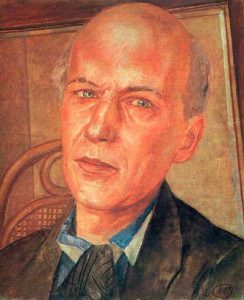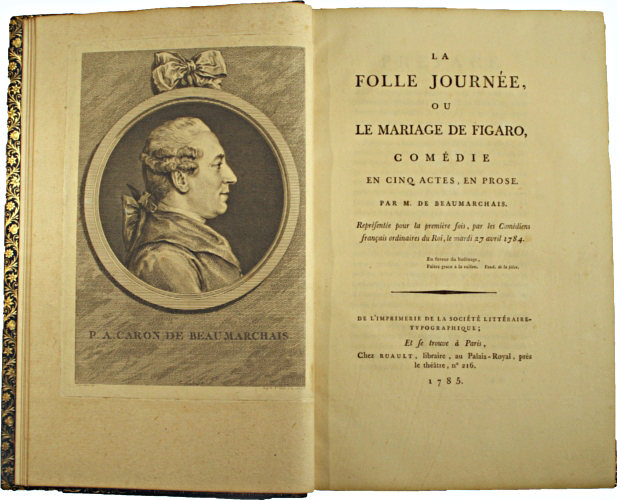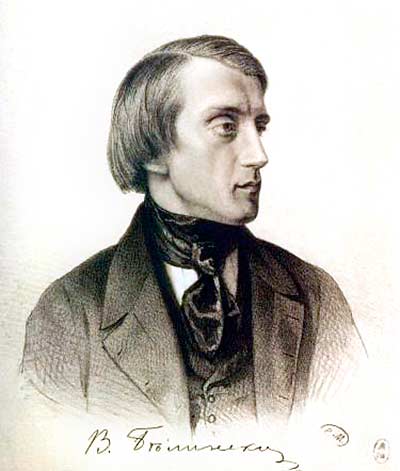ALEXANDER SOLZHENITSYN. “PETERSBURG” ANDREI BELOGO
 About Andrei Bely himself. He is too shaky and unbalanced to write a balanced work. In his unbridled fantasies themselves – unhealthiness, mental shift. Or rather: his peace of mind – “Almost everyone is sick.” And all his characters are so distorted as if he cannot imagine anything healthy. His own, even decadently cultivated, soreness manifests itself many times in the novel. And bizarrely anecdotally, he expresses himself in Nikolai Apollonovich: he spent a week at home in a black masquerade mask (in reality, there was a tiff with L. D. Blok) and “wanted to appear in a domino of flame color, in a mask, with a dagger in his hand”. So, Dudkin said: “I was not in love with any of the women: I was in love with separate parts of the female body, with toiletries, and stockings.” Bely himself writes: “I went through a disease where Friedrich Nietzsche, the magnificent Schumann and Hölderlin, fell into madness”.
About Andrei Bely himself. He is too shaky and unbalanced to write a balanced work. In his unbridled fantasies themselves – unhealthiness, mental shift. Or rather: his peace of mind – “Almost everyone is sick.” And all his characters are so distorted as if he cannot imagine anything healthy. His own, even decadently cultivated, soreness manifests itself many times in the novel. And bizarrely anecdotally, he expresses himself in Nikolai Apollonovich: he spent a week at home in a black masquerade mask (in reality, there was a tiff with L. D. Blok) and “wanted to appear in a domino of flame color, in a mask, with a dagger in his hand”. So, Dudkin said: “I was not in love with any of the women: I was in love with separate parts of the female body, with toiletries, and stockings.” Bely himself writes: “I went through a disease where Friedrich Nietzsche, the magnificent Schumann and Hölderlin, fell into madness”.
Foreboding (written before the revolution) catastrophe: “There will be a leap over history; great will be the excitement; the ground will be cut. ” But often he splashes theosophical thoughts and nonsense into the text, a lot of mediumistic hints (which cannot be understood at all without notes). Hints, hints randomly confuse the reader: either the “eons of the Gnostics” or the tedious mysticism, the philosophical interpretation of delirium. His occult experiences imposes characters. Theosophical delirium is like Nikolai Apollonovich’s dream over a bomb prepared for an explosion. Strongly pushes his erudition into a book that he read in a hobby. (He is strongly influenced by Nietzsche and other philosophers.)
GENERAL IMPRESSION FROM NOVEL. (Conceived only as part 2 of the trilogy, after The Silver Dove, and before something else unwritten. Here I judge as a separate book.)
It must be admitted that something — completely unseen in Russian prose — is completely upset with a thorough, calm narration from the side in the spirit of the 19th century. It is impossible to deny that literary is very interesting. Spreads ideas about the possibilities of prose. Very innovative, many things came out of this in the literature of the 1920s (although it didn’t get any real sense, maybe from the Soviet ideological ironing).
At the same time, however, Bely absorbs, borrows motives and techniques from the literature of the XIX century. (And they are all interpreted in academic notes, otherwise they will not always understand.) Bely himself admitted that he often uses Gogol’s technique of triple repetition (and other Gogol techniques and perceptions). In Ableuhova the Elder repeats the description of Tolstoy Karenin. In the description of the terrorist Dudkin – sophisticated Dostoevsky. His Morkovin suddenly – Nikolai Apollonovich’s illegitimate brother – is again an influx of Dostoevsky. Pushkin epigraphs and quotations are not only inaccurately (or “corrected”), but also inappropriate and often intrusive. In general: abundant – and without a bright goal – reminiscences from Russian literature (and not only), too many of them. Do not hesitate and dubious parody of the Bible, the Apocalypse.
Especially worth it – repeated borrowing from the “Bronze Horseman” – and in places, however excessive (“ran with laughter” from the Horseman). But having persistently curbed this image – it gives already its own bright, almost remarkable picture, as the Horseman climbs the stairs to Dudkin’s room.
Tensely, expressively conveys the processes of thought.
But all together it creates the impression of a big irregularity of the narrative: alternation of successes, absurdities, nonsense, madness, madness. The impression, though, is pathology.
Despite the lengthiness (especially in the 1st half) – in the 2nd half the concentration of events increases: more than half of the novel fits less than a day, and the plot appears quite resilient and thoughtful. (The plot is also strained by the spinning clock of the bomb.)
A big swing – to embed both Pobedonostsev and Azev in one novel, and even cram into the fatal October days of 1905 (But it’s not normal that the terrorists are not at all affected by street events, the general strike, they don’t correlate with them as if they were different times.)
However, all this content would fit into a smaller volume, especially at the expense of the first half. It is written very uneconomically (consciously uneconomical, in this is an artistic intention) – but is it going to the 20th century? Here – we copied this style in the 20s – and half a century had already forgotten how. Today this book is an exhibit of the literary past, for connoisseurs and gourmets.
Reading it is tiring, a big and not always pleasant job. Emil Phage once said of Georges Zand novels that they are being read “with a strange mixture of boredom, annoyance and admiration.” Seems incompatible? But this is exactly what I experienced while reading “Petersburg”. The pleasure of reading – in rare places, and then fatigue, repulsion.
STYLE. Where did this innovation come from? From the idea of (false) that ordinary phrases no longer express anything? Bely wrote to B.V. Tomaszewski in 1933: “I have long realized my theme: this theme is a tongue-tied tongue, constantly overcome by artificially fabricated.



